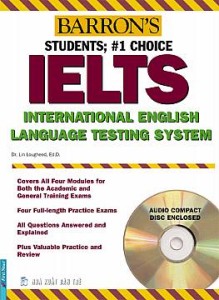Mighty IELTS

I missed a very important part in our Australian immigration story, IELTS. I guess IELTS is one of the most popular exams for assessment of english language proficiency in the world now and as many as 2.5 million tests were taken in 2014 alone.
IELTS is accepted by
1> Immigration authority of Australia ( thats the whole reason I am writing this topic). 2> Immigration authority of New Zealand 3> Immigration authority of Canada 4> Immigration authority of UK 5> Colleges in the above countries for overseas as well as domestic (in some cases) students and a good percentage of institutions in the USA.
I am going to talk about the test only from the perspective of “General Training Version” which is the type of IELTS taken for immigration purposes. Students generally take the “Academic Version” for overseas studies.
For Australian permanent residence visa, it is mandatory for the primary applicant to get band 6 in each sections of IELTS. There are 4 sections in IELTS -> Reading, Writing, Listening and Speaking. Also it is mandatory for each secondary applicant, older than 18 years of age to score a minimum band. Else there are extra charges involved in the visa process. Last I checked, this minimum band was 4.5 ( pretty low isn’t it?).
There are no point if primary applicant gets a band 6 in the test. However there are perks associated with a higher score. You get 10 points for a 7 in each section and 20 points for band 8 in each section. And again this is only for primary applicant. Secondary applicants scoring higher bands do not make any difference.
Now how much preparation do you need? If you know English well, then not too much. However I have seen people with really good english struggling to get the band they want. And don’t we all know that there are a lot of factors that creep in on the exam day. Knowing your subject well is probably just one of them.
Here is a little about each section in IELTS
Listening – In this section , there would be an audio play and the speaker in the audio would generally have an accent like a British accent or an Australian accent etc. You would be given a question booklet and an answer sheet. You would have sometime at end of this section to fill in your answer sheet. There are in general 40 questions and all questions are not multiple choice as far as I remember. All you have to do is listen to an audio play and write answers as per your understanding.
By far, I found this section toughest. People (other 2 test takers in my family) think otherwise. I find this section harder than other 3 sections as there is no going back. The audio will play just once and you have to keep ticking the answers. So I certainly feel you need practice and a strategy for this section unless you are really very good at remembering things.
Reading – Reading is very similar to listening. You would have 40 questions to answer in this section . I found this section pretty straight forward. The main thing that I would suggest is reading the instructions carefully. There is a pretty good chance that you would finish the exam before time. So utilize this time revising your answers. Remember, revision never hurts.
Writing – This section would have 2 parts. You would need to write a letter and an essay.
We analyzed the results thoroughly and there is a very little that you can think off when it comes to writing an essay and a letter. So our strategy was to concentrate on the handwriting part as with my score, we could confidently say that content was ok.
Speaking – This section is basically like an HR interview. Examiner generally starts by asking about your day and then goes into other topics. And there would be one part where the examiner would ask you to express your opinion on a certain topic and you have to speak for about 2 minutes.
This is pretty much the exam. For those of you who have taken TOEFL, let me tell you this test is boring and lengthy. Find out if you can get points out of your TOEFL.
We took the test in St Thomas University Campus , St Paul , Minnesota. Apart from the test, everything about that day was nice. My husband is 4 years elder to me and we never been to school together. I always fancied studying together and having a “college romance” with him ;). I guess we came pretty close to it that day. There was a 2 hour gap between speaking and first 3 sections. We roamed around the campus and had a good lunch at the university cafeteria. Hmmm….
Okay coming back to our exam, we studied from the book Barron’s IELTS. I found the book pretty good. It had a CD for the listening part. And it was pretty much all we needed. There are quite a few online tests available free of cost in case one wants to practice.

If you have written IELTS and scored lower than the band you need, just write it again. Albeit its a costly affair. However there is every chance, you would get a better score with the right preparation and experience from your previous attempt.
So gear up and all the best